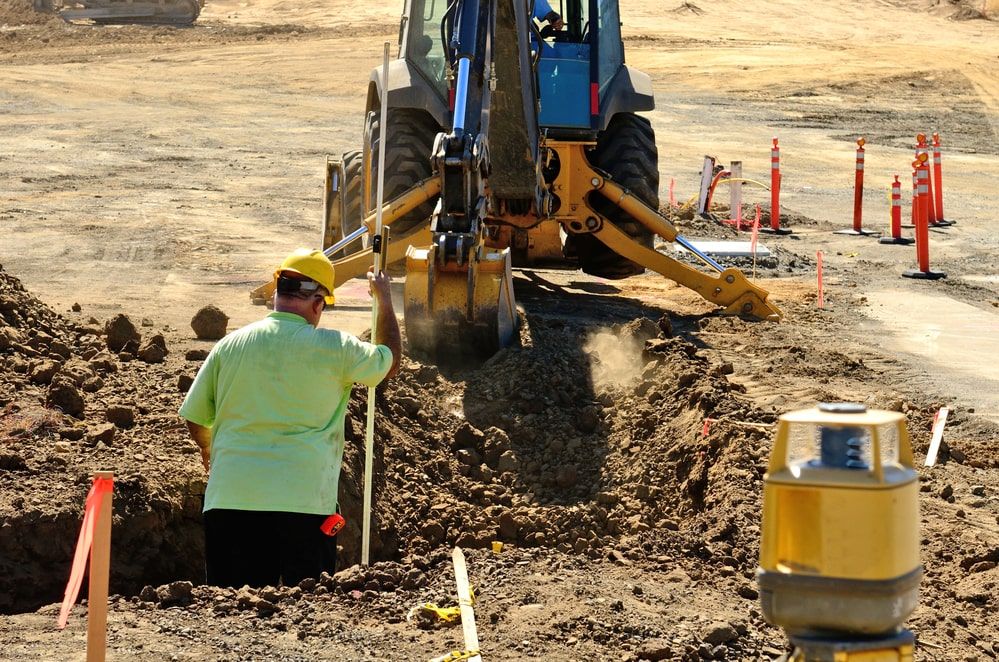Budget-friendly Lancaster Excavation - Quality Excavation at Competitive Costs
Budget-friendly Lancaster Excavation - Quality Excavation at Competitive Costs
Blog Article
Comprehensive Excavation Approaches: Understanding the Principles for Success
The cautious planning, precise execution, and careful interest to information needed in excavation projects require a thorough strategy that encompasses numerous essential facets. The true proficiency exists not merely in recognizing these fundamentals however in effortlessly integrating them to navigate the complexities of excavation jobs with finesse.
Understanding Excavation Project Planning

The first phase of any type of excavation task is the preparation stage, where important choices are made that can considerably affect the outcome of the project. Understanding the task budget plan, scope, and timeline restraints is critical for developing a comprehensive excavation plan that guarantees the job's success.
One secret element of excavation task preparation is the advancement of a thorough timeline that lays out the series of deadlines, turning points, and activities. This timeline serves as a roadmap for the task group, allowing them to track development and make essential adjustments to guarantee the job remains on routine. Additionally, a distinct budget plan that represents all expenses, consisting of tools leasing, labor prices, and materials, is necessary for preventing expense overruns and delays. By carefully thinking about all these variables during the preparation phase, excavation tasks can be carried out effectively and successfully, causing successful outcomes.
Dirt Analysis and Site Analysis
Carrying out detailed dirt analysis and site evaluation is a vital action in the preparation stage of any kind of excavation project. Soil evaluation involves figuring out the composition, structure, and properties of the soil at the excavation website. This info is important for recognizing the dirt's bearing capability, wetness web content, and capacity for disintegration, which are vital variables in figuring out the excavation methods and devices needed for the job.
Website examination goes past dirt analysis and incorporates a wider assessment of the general site problems. This assessment consists of determining any type of prospective hazards, such as below ground utilities, ecological problems, or unpredictable terrain, that can influence the excavation procedure. By completely reviewing the website, job managers can establish reliable excavation approaches that prioritize security, effectiveness, and environmental management.
Utilizing advanced modern technologies like ground-penetrating radar, soil tasting, and drone surveys can enhance the accuracy and effectiveness of dirt evaluation and site evaluation. Spending time and resources in these preliminary actions can inevitably conserve time and stop expensive hold-ups or complications throughout the excavation process.
Tools Selection and Usage
Effective excavation jobs count heavily on critical tools choice and usage to guarantee ideal efficiency and performance. Selecting the ideal equipment for the task is crucial in maximizing performance and lessening downtime. Aspects such as the kind of soil, deepness of excavation, and task range play a significant role in identifying one of the most suitable equipment for the job available.

Along with picking the appropriate tools, appropriate usage is vital to project success. Operators must be educated to handle the equipment securely and effectively - septic ohio. Normal upkeep checks and timely repair work assist stop failures and ensure consistent efficiency throughout the task
Precaution and Rules Compliance
In the world of excavation jobs, focusing on precaution and conformity with laws is vital to guaranteeing a lawfully sound and safe operational environment. Precaution incorporate a variety of methods, including carrying out complete site assessments, executing appropriate signage and barriers, and supplying adequate security training for all personnel involved in the excavation procedure. Adherence to regulations, such as OSHA needs in the USA, makes sure that the excavation task fulfills the required standards to safeguard workers, spectators, and the surrounding atmosphere.

Surveillance Progress and Adjusting Techniques
Exactly how can project managers properly track the development of excavation projects and adjust their methods accordingly to optimize outcomes? Tracking development is important for making sure that excavation jobs stay on track and meet due dates. Project supervisors can utilize various devices and techniques to track progression, such as day-to-day development records, routine website evaluations, and advanced surveillance modern technologies like drones and general practitioners tracking systems. By continually keeping an eye on the job's innovation, supervisors can identify any kind of prospective delays or concerns early and take proactive procedures to address them.

Conclusion
Finally, mastering the principles of thorough excavation methods is crucial for the success of any type of project. By recognizing task preparation, evaluating soil and website problems, choosing suitable devices, abiding by safety policies, and keeping an eye on progress, project supervisors can ensure a smooth and effective excavation procedure. Carrying out these methods will certainly more tips here result in effective end results and decrease possible dangers or obstacles during the excavation project.
The first phase of any excavation job is the planning stage, where critical decisions are made that can significantly impact the end result of the task. Comprehending the task timeline, range, and budget restrictions is vital for producing a detailed excavation plan that makes sure the project's success.
Just how can project managers efficiently track the innovation of excavation tasks and adjust their strategies accordingly to optimize results? By very closely checking progression and being willing to adapt methods, job supervisors can enhance the general success of excavation jobs.
By recognizing task planning, evaluating soil and site conditions, choosing proper devices, complying with safety laws, and checking progress, job supervisors can make certain a effective and smooth excavation procedure.
Report this page